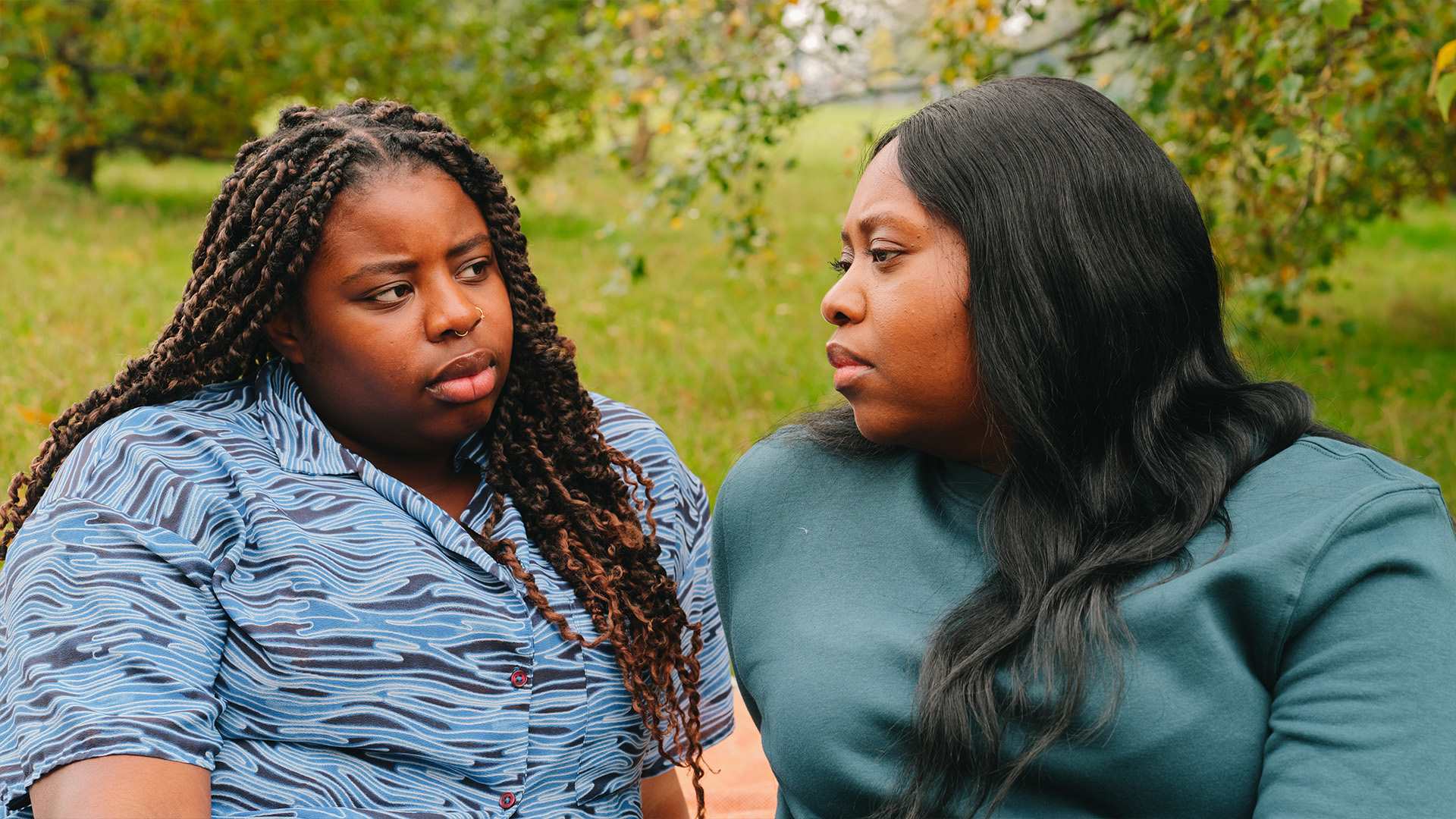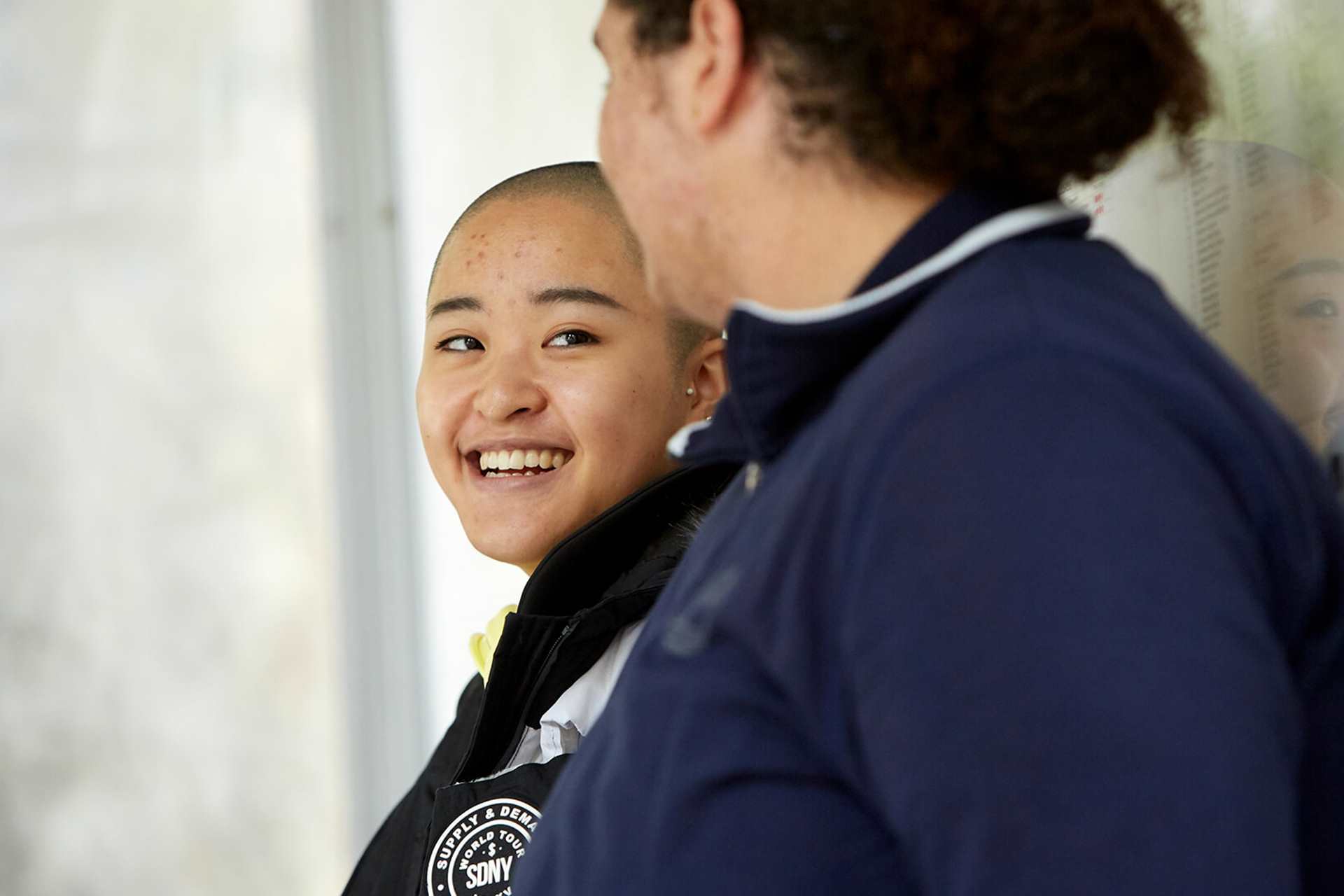Topics mentioned: counselling and therapy, coping with change, coping with endings
About: Change and endings can really impact mental health, but you are not alone. Fabbiha shares her experience of mental health services and her tips for anyone struggling with ending therapy or changing therapists.
Endings can be hard for anyone, but they can be especially hard when ending therapy or changing therapists. Building rapport is important to establish a safe space to open up. It’s more than understandable to feel all sorts of emotions when this space comes to an end and everything you feel is more than valid.
Being under mental health services is difficult. I’ve been under services for almost four years now and I’ve dealt with many changes, some extremely difficult and others easier. Whether an ending or change is occurring for a positive reason or a negative reason, it’s still equally hard to deal with.
Sometimes people come into your life to teach you things. They might only be in your life for a short time, but it’s about what you take from that time. It’s always helped me to think of what each therapist taught me.
Tips for when therapy comes to an end
With my first therapist, it ended very quickly as it wasn’t the right support for me. This was a good change. But with my second therapist, my therapy ended after two years because I’d finished my time with them and was moving on to a new form of therapy.
This ending was more difficult, because I didn’t want to change therapists. I’d grown very fond of them because they just ‘got’ me and understood me better than anyone.
It truly felt like my world was ending - this is something that I find many young people feel in therapy as they often cling to the one person they find comfort in, because they understand them fully. I struggle profusely with change, so this was especially difficult because I’d known the therapist for so long.
But one thing a psychologist said to me changed my life and view of endings. He said, ‘sad goodbyes are often the best goodbyes because it means the time meant something’. This one sentence is the best thing I’ve ever heard. It gave me a new perspective on something that always felt so unsettling.
Sometimes people come into your life to teach you things. They might only be in your life for a short time, but it’s about what you take from that time. It’s always helped me to think of what each therapist taught me.
It can be something as simple yet important as, ‘my therapist taught me to believe in my abilities’, or something that I always take away from good professionals is ‘they have taught me that there truly are good people in such a cruel world’. I remind myself of these lessons when I miss a mental health professional.
They came into my life to show me that there is hope and I always hold onto this during my darker days.

You spent so long doing such hard and rewarding work with your therapist, and you can hold onto this and channel it. I like to ask myself:
- ‘What would my therapist say in this situation?’
- ‘What did my therapist used to say when I’d bring up a similar situation to them?’
They would love to see you flourish. They would love to know that you have taken all your work with them on board. They will be so proud of you when you are able to find your footing without them.
You can also come up with a plan on how to cope after ending therapy. Things I find helpful to add are:
- Safe people I can talk to when things are difficult.
- A list of helplines or mental health services, online or in person that offer support outside of therapy, like SHOUT text line, Childline chat service or phone contact, and even my local crisis numbers. You can find these by Googling mental health crisis lines in your area.
- Distraction techniques like calling a friend, going on a safe walk, listening to your favourite music, going out to eat a comfort food.
- Write down all the difficult moments you’ve gotten through, or all the difficult things you discussed in therapy. This holds as a physical reminder that YOU did that hard work, and you managed to work through hard times.
If communication is difficult for you around certain topics, you can ask them to write back to you rather than talking. After all, it’s your space. The more you can communicate your needs to them, the more you can get out of therapy.
Tips for changing therapists and transitioning to adult services
Two years down the line, I’ve ended work with another therapist who I’ve known for over a year, but they were my therapist while inpatient. This was more intense because I saw them every day, even when I didn’t have a session. I had to end the therapy abruptly as I turned 18 and was transitioned out of children’s services.
Changing to adult services can also be a very hard time for young people. And while I’m still in this transition phase, there are many things that have helped me understand endings and to process change.
Reflect on your time with your therapist, what they helped you learn about yourself, and what worked well. Communicating this with a new professional can help you build a new relationship.
I try to think about the hopeful things I spoke about with my therapist and how much they believed in me when I didn’t believe in myself. This helps me find hope and feel confident that ‘if they believed I could, then it means I can. They wouldn’t have believed in me so much if they didn’t think I could do all these things.’
It’s also okay if you don’t get along with a new therapist. You can try a few sessions and if it’s still not right, you can request a change. This is dependent on your care service, of course.

Starting with a new therapist can come with many anxieties and challenges. I write down on paper or on my phone the things that I’d like them to know about me and how I prefer things, such as reminding me when there is around 10 minutes left of the session so that I can talk about something lighter, so I don’t leave feeling very overwhelmed. Sometimes I’ll write down things that I’ve struggled with recently or things that I’d prefer them to read about instead of speaking.
If communication is difficult for you around certain topics, you can ask them to write back to you rather than talking. After all, it’s your space. The more you can communicate your needs to them, the more you can get out of therapy.
Your therapist is there to help you navigate this ending. They’ve done it many times before and are skilled in it. It’s okay to worry and feel anxious about coping without your therapist, but therapists are the best people in situations like this to help and advise you.
Although things may be difficult right now, if you’ve gotten through something once, you can most certainly get through it again. You have that strength within you and even if it doesn’t feel like you do, it is still there. You just have to hold out until you can feel that again.
They would love to see you flourish. They would love to know that you have taken all your work with them on board. They will be so proud of you when you are able to find your footing without them.
More information and advice
We have tips and advice to help you find the support you need. Take a look at our guides.
Where to get help
However you're feeling, there are people who can help you if you are struggling. Here are some services that can support you.
-
Childline
If you’re under 19 you can confidentially call, chat online or email about any problem big or small.
Sign up for a free Childline locker (real name or email address not needed) to use their free 1-2-1 counsellor chat and email support service.
Can provide a BSL interpreter if you are deaf or hearing-impaired.
Hosts online message boards where you can share your experiences, have fun and get support from other young people in similar situations.
- Opening times:
- 24/7
-
Shout
Text SHOUT to 85258.
Shout provides free, 24/7 text support for young people across the UK experiencing a mental health crisis.
All texts are answered by trained volunteers, with support from experienced clinical supervisors.
Texts are free from EE, O2, Vodafone, 3, Virgin Mobile, BT Mobile, GiffGaff, Tesco Mobile and Telecom Plus.
Texts can be anonymous, but if the volunteer believes you are at immediate risk of harm, they may share your details with people who can provide support.
- Opening times:
- 24/7
-
Youth Access
Provides information about local counselling and advice services for young people aged 11-25.
Put in your location and what you need help with into their 'Find help' search, and see what services are available in your area.









